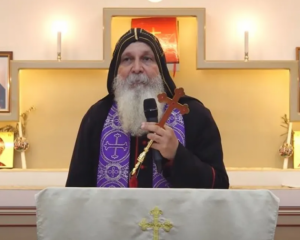A government spokesman said about 200 people died as they took to the river to flee clashes in Malakal, a major transit point and administrative centre of Upper Nile state.
Another official in charge of disaster relief said he could not give a death toll because of poor communications with the area.
"The boat was overloaded with people," said Banak Joshua, the director general of disaster management at the Humanitarian Affairs Ministry. He declined to say how many died.
"Most of the casualties were children because the adults probably swam to safety," he told Reuters.
Rebels led by former vice president Riek Machar said they had seized control of Malakal, which lies 530km north of the capital, a report denied by President Salva Kiir's government which said their rivals were repelled.
"There has been fighting today until 5pm. The rebels have been ... repulsed," said Presidential spokesman Ateny Wek Ateny, responding to the rebel claim which was made on the sidelines of peace talks in Addis Ababa.
He said 200 people had died after the ferry capsized and accused rebels of driving panicked residents out of town.
Fighting that erupted in mid-December has re-opened ethnic faultlines. According to one estimate, the conflict may have killed as many as 10,000 people, although there is no official toll for those killed in the desperately poor nation.
The United Nations says 500,000 people have fled their homes, with more than 70,000 of them fleeing abroad.
Peace talks in the Ethiopian capital that began this month have made little obvious progress till now, with the government rejecting rebel demands for the release of 11 of their political allies jailed after they were accused of attempting a coup.
Michael Makuei, government spokesman at the talks, said talks had moved forward and the two sides had agreed to discuss the cessation of hostilities and detainees separately.
"We are progressing well, and probably by tomorrow (Wednesday) we may agree on the cessation of hostilities," he said. "Thereafter we will move to the other topic which is the issue of the detainees."
In Uganda, which sent troops to South Sudan days after fighting erupted last month, opposition lawmakers said the government should have sought an international mandate for the deployment and should set a time limit on the troops' stay.
"For us to be involved in South Sudan we must follow international regulations," opposition MP Jack Wamanga said during a parliamentary debate, called to seek parliamentary approval for the move.
He said Uganda should have sought backing from the United Nations, the African Union or IGAD, the regional African group that is sponsoring the peace talks in Ethiopia.
Ugandan President Yoweri Museveni, himself a former rebel-turned-statesman whose supporters dominate parliament, backed Kiir's SPLA rebels during Sudan's civil war before South Sudan split away in 2011.
The government has not said how many troops it has sent to its northern neighbour, but last month military sources told Reuters it involved deploying hundreds of soldiers.
Officials initially said the soldiers would help evacuate Ugandans stuck in South Sudan but has since admitted they were protecting Juba's airport and the presidential palace.
Rebels have accused Uganda of deeper support for Kiir's forces, including mounting air raids. Uganda denies this.












